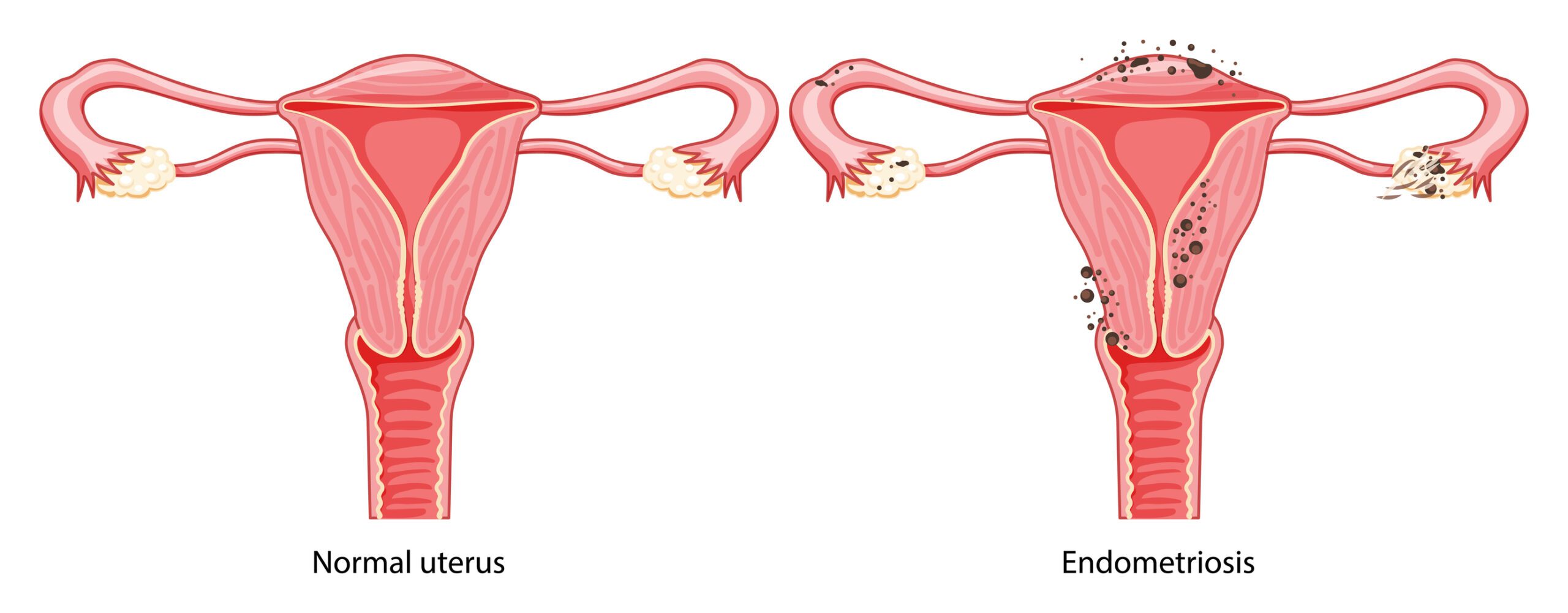- renukaborisa77@gmail.com
- Mon to Sat : 07.00pm to 09.00pm | Sunday: Closed
- +91 9619164453
Endometriosis is a medical issue that impacts countless women globally, but it is often surrounded by myths and confusion. This intricate condition occurs when tissue akin to the uterine lining develops outside the uterus, affecting numerous facets of life, including physical health and emotional stability. In this article, we aim to clarify prevalent misconceptions about endometriosis and distinguish between reality and myth to enhance awareness of this frequently misunderstood disorder.

Myth 1: Endometriosis Only Involves Intense Menstrual Pain
Fact: Although severe menstrual cramps are a frequent indicator of endometriosis, the disorder includes a wider array of issues beyond just menstrual pain. Individuals with endometriosis may experience chronic pelvic discomfort, pain during sexual activity, painful bowel movements or urination, and even challenges with fertility. It's important to note that the intensity of symptoms doesn't necessarily reflect the severity of the disease; some women with advanced endometriosis might have minimal symptoms, whereas others with less severe cases can suffer from considerable pain. /p>
Myth 2: Endometriosis is Uncommon
Fact: Contrary to popular belief, endometriosis is quite widespread. Research suggests that around 10% of women in their reproductive years are impacted by this condition, translating to millions affected worldwide. Unfortunately, many cases go undiagnosed because of insufficient awareness and knowledge about the illness.
Myth 3: Endometriosis is Exclusively a Fertility Concern
Fact: While endometriosis is recognized for its effects on fertility, it is not limited to that aspect. Numerous women with this condition successfully become pregnant without assistance. Nonetheless, endometriosis can lead to scarring and adhesions that may interfere with reproductive organs and their functionality, which can complicate the conception process. It’s essential to understand that endometriosis impacts general health and quality of life in addition to fertility.
Myth 4: Poor hygiene or lifestyle choices lead to endometriosis.
Fact: The precise origins of endometriosis are still unclear, and they are not linked to an individual's hygiene or lifestyle habits. It is thought that genetic factors, immune system issues, and hormonal fluctuations may contribute to this condition's onset. Attributing it to personal choices is misleading and can perpetuate stigma and false information surrounding the disease.
Myth 5: Endometriosis Affects All Women Equally
Fact: The experience of endometriosis is highly individualized. Symptoms, intensity, and effects on everyday life can vary significantly from one person to another. This condition exists in multiple stages and forms, leading to diverse manifestations. Tailoring treatment and management strategies is crucial to meet the specific requirements of each person affected by endometriosis.
Endometriosis is a complicated and diverse condition that requires precise information and empathetic support. By clarifying misconceptions and emphasizing the truth, we can enhance our assistance to those impacted and foster increased awareness and effective handling of this difficult disorder.
If you think you might have endometriosis or are dealing with related symptoms, it is essential to consult a healthcare professional for an accurate diagnosis and appropriate treatment. Keep in mind that those who are well-informed can make empowered decisions, enabling them to lead more satisfying lives despite the hurdles presented by endometriosis.

